National human rights institutions
Showing 1 to 12 of 12 results

COVID economic recovery: can Europe's National Human Rights Institutions play a bigger role?
Our Director of Strategy and Learning, Allison Corkery, presented at a training workshop on how national human rights institutions can monitor States' responses to COVID-19.

CESR Welcomes Scotland’s Commitment to Enshrining Human Rights Budgeting in Law
Scotland has achieved a historic milestone as its government announced new legislation that incorporates a set of human rights recommendations to guarantee adequate standards of living for all. CESR has been proud to support the work of the Scottish Human Rights Commission, a key institution in this accomplishment, that also mandates human rights are taken into account and respected during the budgetary process.

Confronting COVID: How Civil Society is Responding Across Countries | New Zealand
Paul Hunt, Chief Human Rights Commissioner for Aotearoa New Zealand, narrates how the institution faced the human rights emergency brought on by the pandemic.
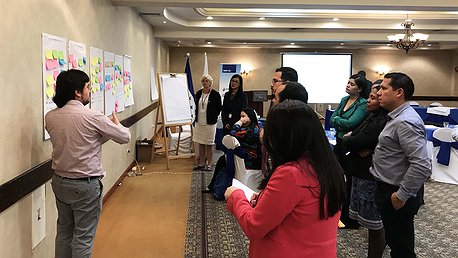
Latin American national human rights representatives trained in ESCR
CESR’s Mihir Mankad and Sergio Chaparro facilitated a regional training workshop on economic, social and cultural rights (ESCR) in Tegucigalpa, Honduras.
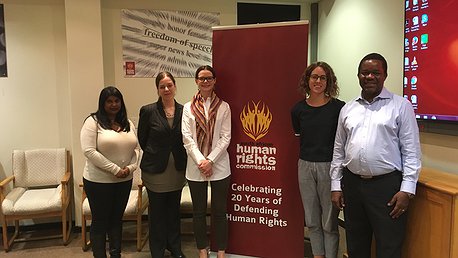
Developing human rights indicators for the SDGs in South Africa
May 4: Allison Corkery presented in Johannesburg on the role of national human rights institutions in developing human rights indicators for the SDGs.

Defending Dignity: Introduction
CESR and the Asia Pacific Forum (APF) present a new manual - ‘Defending Dignity’ - designed to strengthen the role of National Human Rights Institutions in monitoring and enforcing economic, social and cultural rights. The manual is complemented by a series of motion graphics and explanatory videos.This introduction unpacks the question of what is monitoring, and what should it mean for NHRIs getting to grips with economic, social and cultural rights. It covers a wide range of activities that NHRIs commonly undertake as part of their mandated functions.
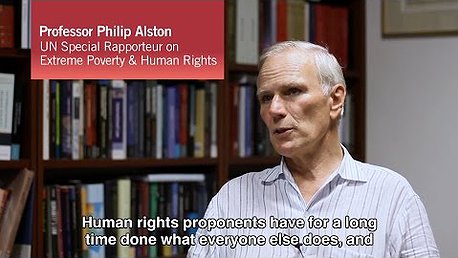
Defending Dignity Part I: Defining the issues
CESR and the Asia Pacific Forum (APF) present a new manual - ‘Defending Dignity’ - designed to strengthen the role of National Human Rights Institutions in monitoring and enforcing economic, social and cultural rights. The manual is complemented by a series of motion graphics and explanatory videos. This section explains how a human rights-based approach can be used to frame questions about poverty and socio-economic deprivation in a way that holds the relevant actors responsible for human rights violations.

Defending Dignity Part II: Collecting and analyzing data
CESR and the Asia Pacific Forum (APF) present a new manual - ‘Defending Dignity’ - designed to strengthen the role of National Human Rights Institutions in monitoring and enforcing economic, social and cultural rights. The manual is complemented by a series of motion graphics and explanatory videos. Part II of the manual tackles collecting and analysing data. After defining the right question to ask, the next step is to collect the data that can help answer that question.
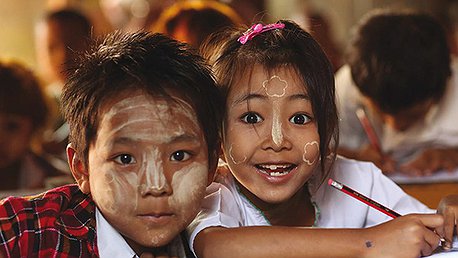
Manuals & Guides, Publications
Defending Dignity: A Manual for National Human Rights Institutions
The Asia Pacific Forum (APF) and CESR are pleased to release a new manual designed to strengthen the role of NHRIs in monitoring economic and social rights.
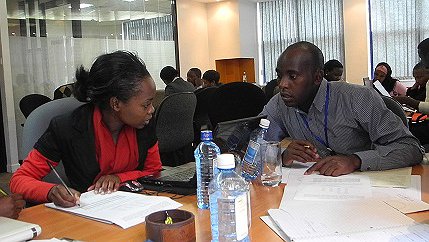
Publications, Reports & Briefings
National Human Rights Institutions can help ensure post-2015 goals deliver
Briefing: A new document from CESR and the Danish Institute for Human Rights explains the role NHRIs should play in post-2015 development.

Strictly business: national rights institutions and the private sector
National Human Rights Institutions (NHRIs) have a critical part to play in making sure the private sector be called to account for its impact on human rights.
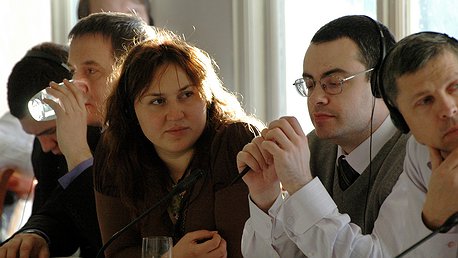
Publications, Reports & Briefings
National Human Rights Institutions and Economic and Social Rights
This 2011 briefing examines national human rights institutions as monitors of economic, social and cultural rights.